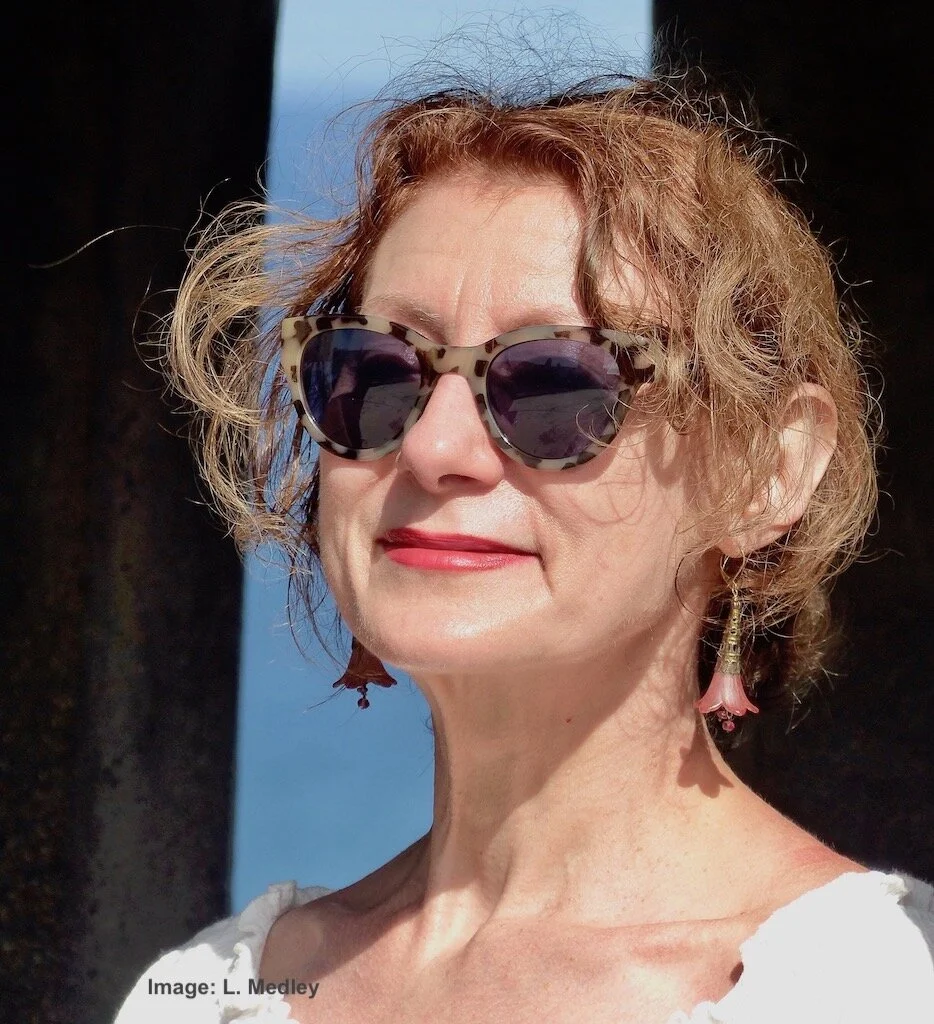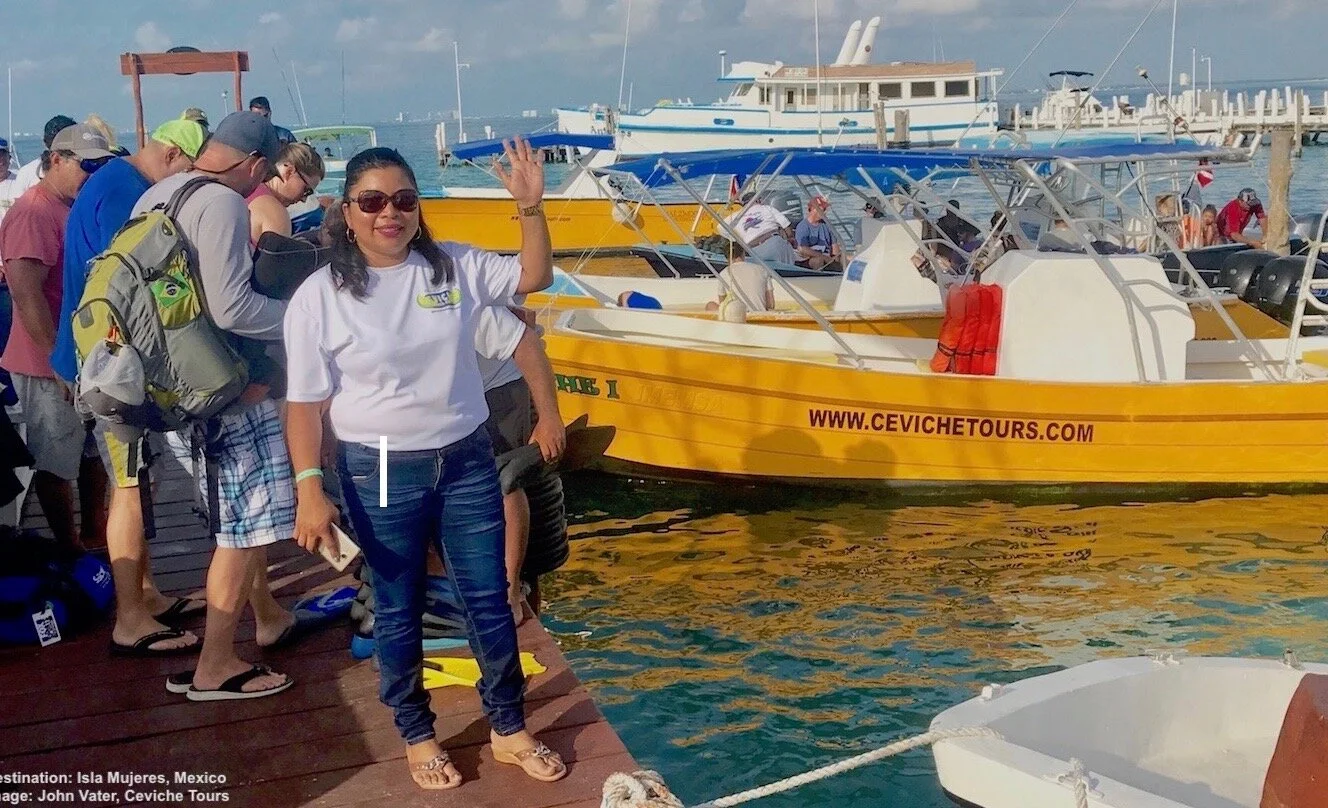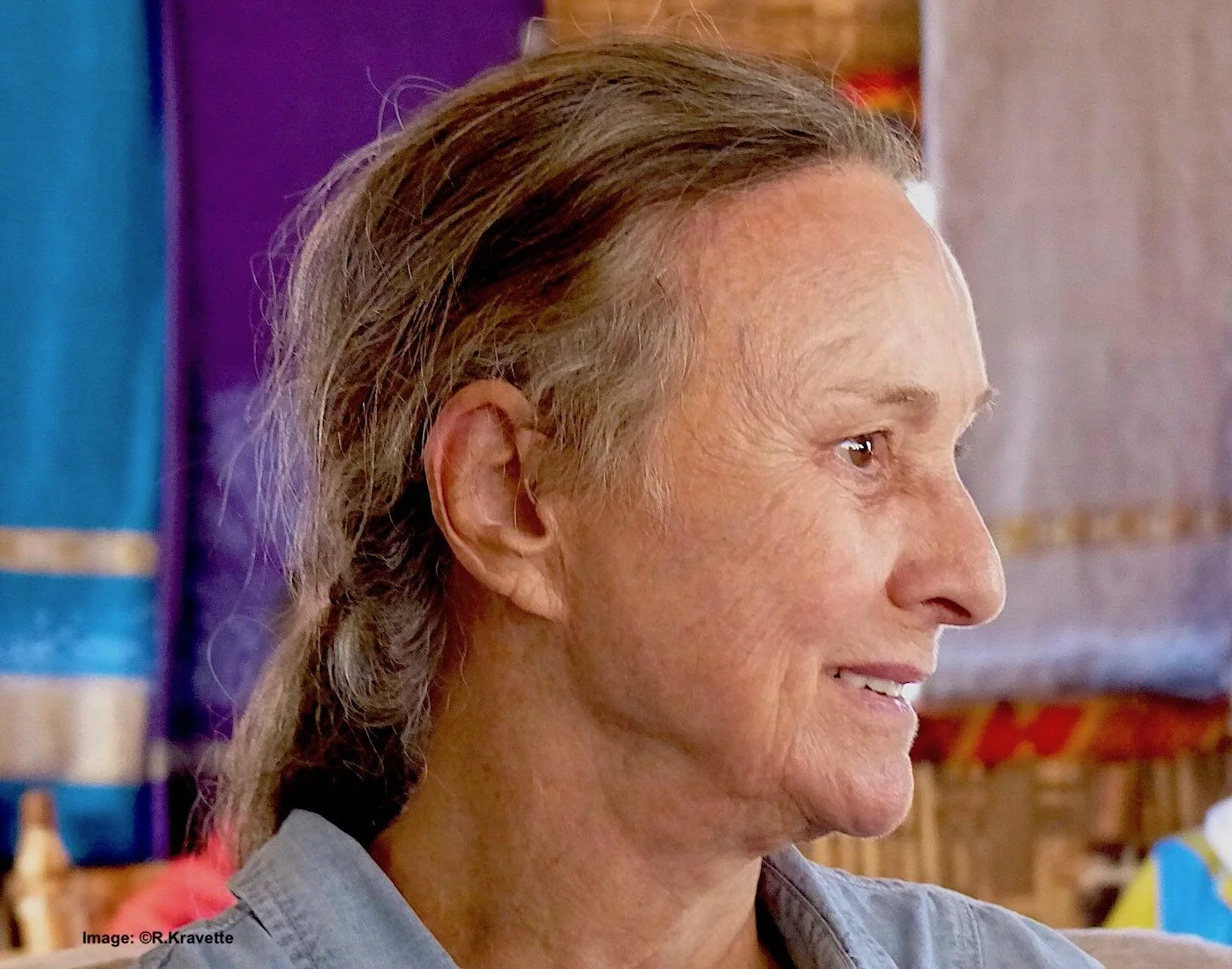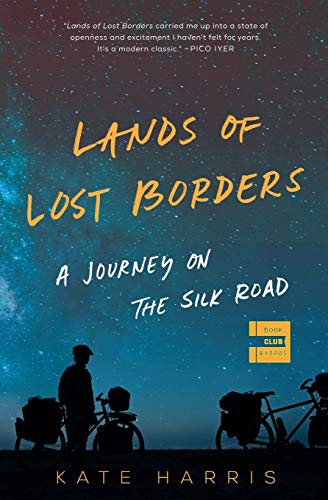Why I Became A Travel Advisor in the Middle of a Pandemic
THE ROAD LESS TAKEN, LIKE THIS ONE IN BORNEO IS LIKE A MAGNET ON MY SOUL. I WANT TO SEE WHAT’S OVER THERE. IMAGE: THANKS TO ©MARC CRONJE, NATURALIST GUIDE
By Roberta Kravette
ROBERTA KRAVETTE, TRAVEL AGENT AND DESTINATION: WILDLIFE EDITOR.
Being quarantined in a small city apartment has been an interesting experiment. When we began ten weeks ago I looked upon it as sort of an adventure. I envisioned time for cleaning-out closets, re-organizing drawers, writing everything I never have time for, experimenting with new recipes, and having long meaningful conversations with my husband. Well, 10-weeks later, it has certainly been an adventure. But not a single one of those romantic day-dreams happened - although we did manage to clean the windows. But, I have to admit that lock-in has brought a few surprising benefits.
The Surprising Benefits of a 10-Week Quarantine
My level of coffee dependency has decreased – something I thought was not possible.
We established with our neighbors, Socially Distanced Friday Happy Hour – think 4 to 6 people dispersed over raising a glass and conversing from opposite ends of our high-rise hallway - can be fun.
We discovered terrific home-office workspaces in our studio apartment (windowsill, stovetop, top of the bookcase). And also established that "doable" is not the same as "preferable."
We discovered that a never-ending to-do list is still never-ending, even when it seems as if there should be the never-ending time in which to finish it.
And I PASSED MY TRAVEL AGENT EXAM LAST WEEK! What???
What Kind of a Nut Becomes a Travel Agent
in the Middle of a Pandemic?
WHAT KIND OF NUT BECOMES A TRAVEL AGENT IN A PANDEMIC? THE KIND WHO BELIEVES IN THE POWER OF RESPONSIBLE TOURISM TO SHINE A LIGHT ON AT RISK CULTURES, HABITATS, AND SPECIES LIKE THIS ORANGUTAN IN BORNEO. IMAGE: THANKS TO ©MARC CRONJE, NATURALIST GUIDE
Funny, I asked myself that same question, even as I was studying. But there is an answer:
The kind of nut who believes that the right travel is an unmatchable force for good in the world, and for ourselves.
A nut that believes that over time we will find ways to work with this risk, just as we have found ways to work with other risks.
And a nut who wants to make sure that you always have the right information, and someone who has your back, when you are traveling.
Back to Normal or Forward to the Future ?
THIS WAS THE SCENE A YEAR AGO, BIRDERS CATCHING THE SPRING WARBLER MIGRATION IN CENTRAL PARK, NEW YORK. WE WILL NOT BE GOING BACK TO THIS LEVEL OF “TOGETHERNESS” ANY TIME SOON. IIMAGE: ©ROBERTA KRAVETTE
Full disclosure: I am not proposing that we are going "back to normal." That is possible, not tomorrow, not anytime. Time marches forward into the future – not back to the past.
But researchers around the world are working on a COVID-19 solution. Everyday we have more knowledge, experience, ideas - and understanding. Understanding the issue can lead to action – as it always has. And that is the turning point. We are aren't quite there yet – but we are getting closer.
Curiosity Is a Human Constant
Even in a pandemic, some things do remain consistent and one is our curiosity. We humans all suffer from that insatiable pull to explore what's "over there." It's a driving force, the pulse at our core. It pushed us to walk out of Africa, to cross the Pacific in dugout canoes and the Atlantic in tiny sailing ships. It sent us up Kilimanjaro and Everest, brought us to the moon and is forcing us beyond.
Sometimes “Monsters” are Inspirational
THE PLACE WHERE MONSTERS WAITED WAS CLEARLY SHOWN ON EARLY MAPS, BUT ALSO CLEARLY, THAT DID NOT STOP US SAILING THERE. DETAIL OF THE SOUTH AMERICAN COASTLINE FROM URBANO MONTE’S TAVOLA XXIII, ABOUT 1580. THANKS TO AHMED KABIL AND THE RUMSEY MAP CENTER
In our relentless need for "new", we have faced curses and contagion, epic weather, unfriendly governments, unknowable languages, roque groups, red tape, lost luggage, questionable transportation, and even more questionable routes, and none of it has stopped us. Nothing, not even the fraught declaration, "Past Here There Be Monsters" could stop us from going "over there" to check it out. All those challenges are, well …inspirational!
What is more excellent than your first time in a new place? The way the sun rises or sets, the scent of the air, a waft of music, the first taste of a local specialty, the song of an endemic bird, an unexplored forest, a new story or tradition, the smile of a stranger, wildlife you have never seen. I cannot imagine life without this. Can you?
FOR ME THE VERY FIRST TIME IN A NEW DESTINATION IS ALWAYS EXCITING, ESPECIALLY WITH GOOD FRIENDS, EVEN IF IT IS IN THE MIDDLE OF NOWHERE. THE TIME WILL COME AGAIN WHEN WE CAN TRAVEL TOGETHER. IMAGE: ©DESTINATION: WILDLIFE
So, we will travel again to quench our curiosity and satisfy our souls, and as we do, we will be making a positive difference in the world.
The Economics of Travel is Not All Resorts and Airlines
We are all concerned about the economy. Did you know, as of January 1st, of this year, 1 in 10 jobs, or 10% of total employment on the planet was in travel or travel-related industries? We can understand how tourism relates to the economies of Paris or New York. Still, it has a much stronger impact in places like Zortman, Montana and Hyder Alaska, Ushuaia, Argentina, and Tsagaannuur, Mongolia. In each location, a comparably few visitors each year support entire communities and help preserve ecosystems.
Last year alone, the tourism industry put 2.9 trillion dollars into the global economy. It is the planet's 3rd largest industry (behind oil and chemicals) and the major economic driver in much of the world.
And while it is true a lot of that money went to the airlines and big resorts – it is also true that tourism provides the livelihood for millions of people who own or work in local restaurants, cafés, B&Bs, and small hotels, and for the guides and craft makers.
The images above are three local small tourism businesses built on the ashes of large unsustainable industries: A defunct salmon cannery on Prince Rupert Island, British Columbia, Canada became the Cassier Cannery Guest Houses, when the fishing industry collapsed in Isla Mujeres, Mexico, Ceviche Tours was born, and the 100-yr old Queensbury Hotel in Glens Falls, New York, abandoned by a well-know international chain again welcomes birders, brides and others to this wonderful area on the Hudson River. Each of these locally owned businesses have created new economic life in their communities.
SHOULD THIS CHILD IN LALIBELA, ETHIOPIA HAVE BEEN IN SCHOOL? ABSOLUTELY. BUT WOULD HE HAVE WAITED HOURS FOR MAYBE 10 TOURISTS TO PASS THIS SPOT IF THAT MONEY WAS NOT IMPORTANT? IMAGE: DESTINATION: WILDLIFE
Our Thirst for the Story Preserves Endangered Culture
The survival of some cultures may depend on tourism, too. In this age of technology, local and indigenous cultures are disappearing fast. It is a rare young person who aspires to live their grandparent's subsistence life. But our curiosity does good here, too.
HAIDA ARTIST AND CARVER, STORMY, USES TRADITIONAL METHODS TO CREATE THE LONG-BOATS THAT HOLD ENTIRE EXTENDED FAMILIES. HE IS HOLDING HIS MODEL OF FINISHED CANOE. IMAGE: ©R.KRAVETTE.
Last summer, I went to Prince of Wales Island, Alaska in search of grey wolves. There, welcomed by the island's Haida community, I heard the ancient stories, learned about their ancient totems, met a new generation doing tradition carving and working with the elders to builder a new longhouse. They are looking for ways to keep vitality in the ancient Haida culture.
In Ethiopia, Mekunnan, a Dorze chief's son, fresh from university with a degree in tourism, made sure we understood the whys and hows of their unique elephant-shaped houses. Tribal elders had sent him to school, to learn how to preserve their culture. My bet is on Mekunnan.
FOR THE DUKHA PEOPLE, REINDEER HERDERS IN TSAATAN, MONG0LIA, JUST A FEW DOZEN TOURISTS A YEAR STAND BETWEEN PRESERVING OF THEIR WAY OF LIFE OR ASSIMILATION INTO THE CITIES IMAGE: BIG MONGOLIA (A SMALL COMPANY OWNED AND RUN BY A US AND A MONGOLIAN PARTNER. ASK US ABOUT TOURS.
In these and villages all over the world, visitors pay to experience ancient cultures as the ancestral stories flow, they enrich both the traveler and the next generation. The survival of entire cultures depends on the right kind of tourism.
How To Save Species? Put Some Eyes on It
DECADES OF WAR ON THE ISLAND OF MOZAMBIQUE HAS WRECKED HAVOC ON POPULATIONS SOME OF THE RAREST CREATURES ON EARTH. THE SLOW RETURN OF WILDLIFE TOURISM IS HELPING CONSERVATION EFFORTS. IMAGE: ©MARC CRONJE, NATURALIST GUIDE.
Tourism gives nature and wildlife economic value, too. We cannot forget that long before we entered the COVID age, most scientists believed we had entered the Sixth Mass Extinction. It is an accepted fact that elephants, rhino, tigers, snow leopards, and more still roam the earth in large part because tourists pay for the opportunity to see them. These species need habitat to survive. When local people protect the range of a tourist-drawing lion, they are safeguarding full ecosystems and positively impacting the earth's biodiversity and climate change.
What Happens When Tourists Don’t Visit?
WILDLIFE TOURISM GIVES LOCAL ECONOMIC VALUE TO SPECIES LIKE RHINO AND LION, BUT SO DOES THE ASIAN “MEDICINE” TRADE. WHEN TOURIST INCOME DISAPPEARS, WILL LOCALS SELL THEIR “PARTS” TO FEED THEIR CHILDREN? IMAGE: ©MARC CRONJE, NATURALIST GUIDE..
As I write the travel industry is close to a complete stop. I worry about the fate of cultures and species. I worry about those who know the secrets of the big cats, the rhinos, and mountain gorillas. I worry about the folks who accommodate the tourist who come to see jaguar and hyacinth macaw; and the people who sell their crafts to the whale and wolf watchers and the former shark hunters turned shark guides in fishing villages over the world. These people have children and grandparents to support – by one means or another.
When we travel right, you and I help create sustainable economic well-being for local people, and that is the best thing we can do for the well-being of the planet – and our own future.
None of Us Are Jumping in a Plane Tomorrow
WAITING FOR BETTER DAYS. THESE PLANES TAKE LIMITED NUMBERS OF TOURISTS TO PLACES UNREACHABLE OTHERWISE. THERE ARE TWO BASIC TYPES OF INDUSTRY IN THE FAR NORTH: TOURISM OR UNSUSTAINABLE NATURAL RESOURCE EXTRACTION. IMAGE: ©LINDA WOODSON
But let's face it, no one, including me, is jumping into a plane (or a train or even a car) and heading off for a couple of weeks of leisurely exploring anytime soon.
And that brings us to the original question:
What kind of nut passes a travel agent exam and sets up an agency in the middle of a pandemic?
The answer is simple:
She is a nut who knows that this virus has not won.
A nut who is confident that both the planet and we are better for our travels.
A nut who is optimistic that we will find ways to work with this risk, just as we have found ways to work with other risks.
And a Nut who will make sure that you always have the right information, and that someone has your back when you are on – extraordinary trips that benefit biodiversity and people.
ENJOYING A SUNDOWNER WITH GOOD FRIENDS AFTER A FABULOUS DAY OF EXPLORING THE NAMIBIAN COAST LINE (SEAL COLONY, BIRD SANCTUARY, AND OLD WRECKED SHIPS) CANNOT WAIT TO GO BACK. IMAGE: R.KRAVETTE












